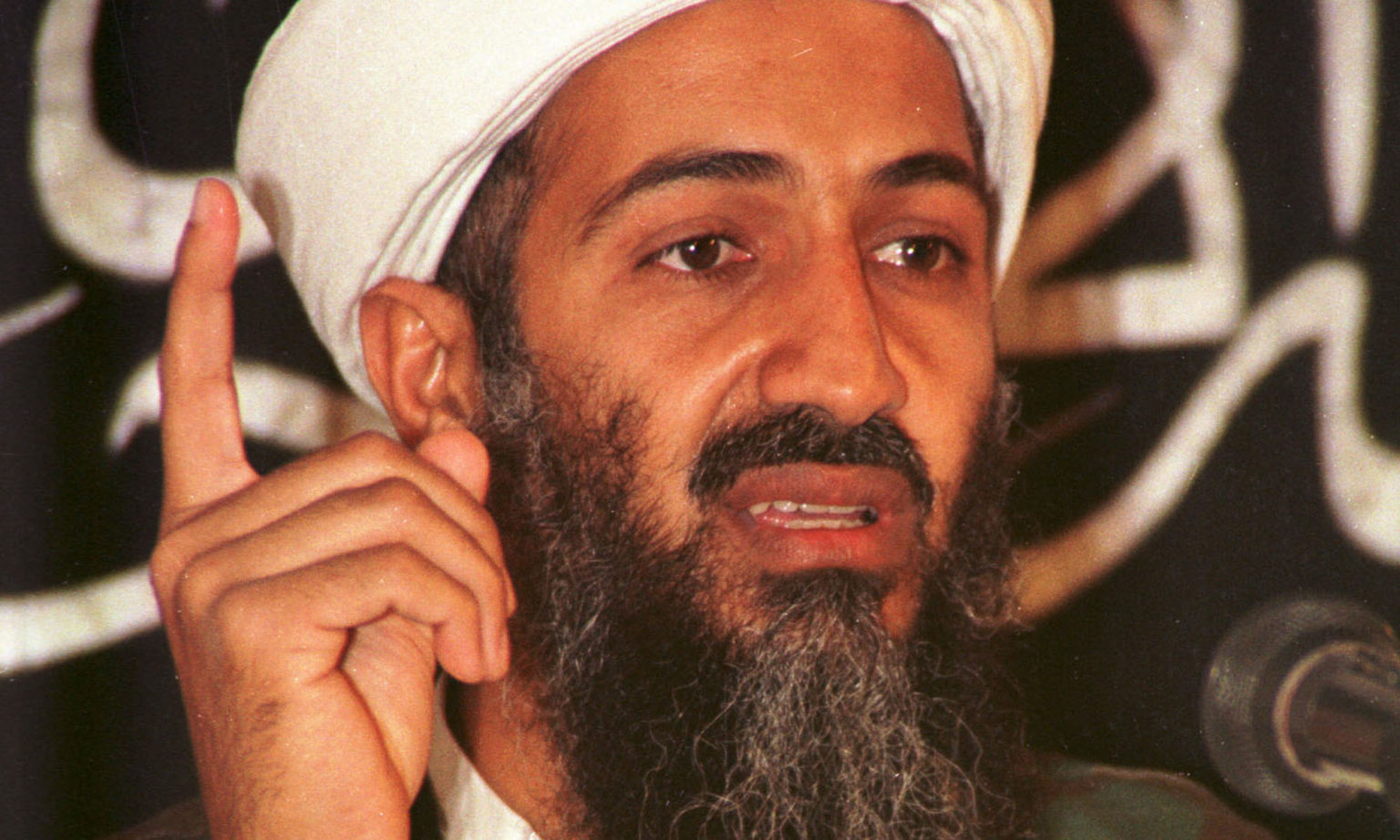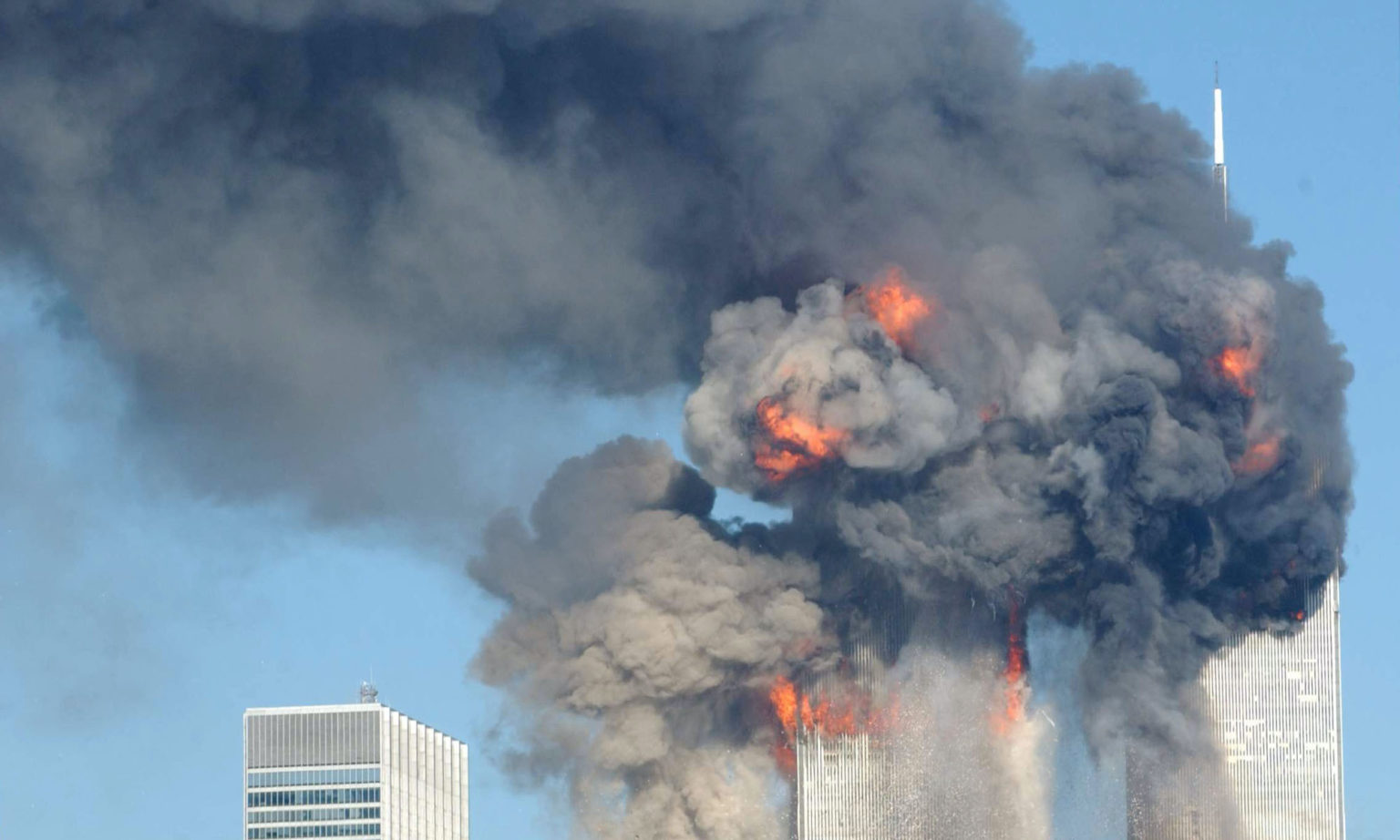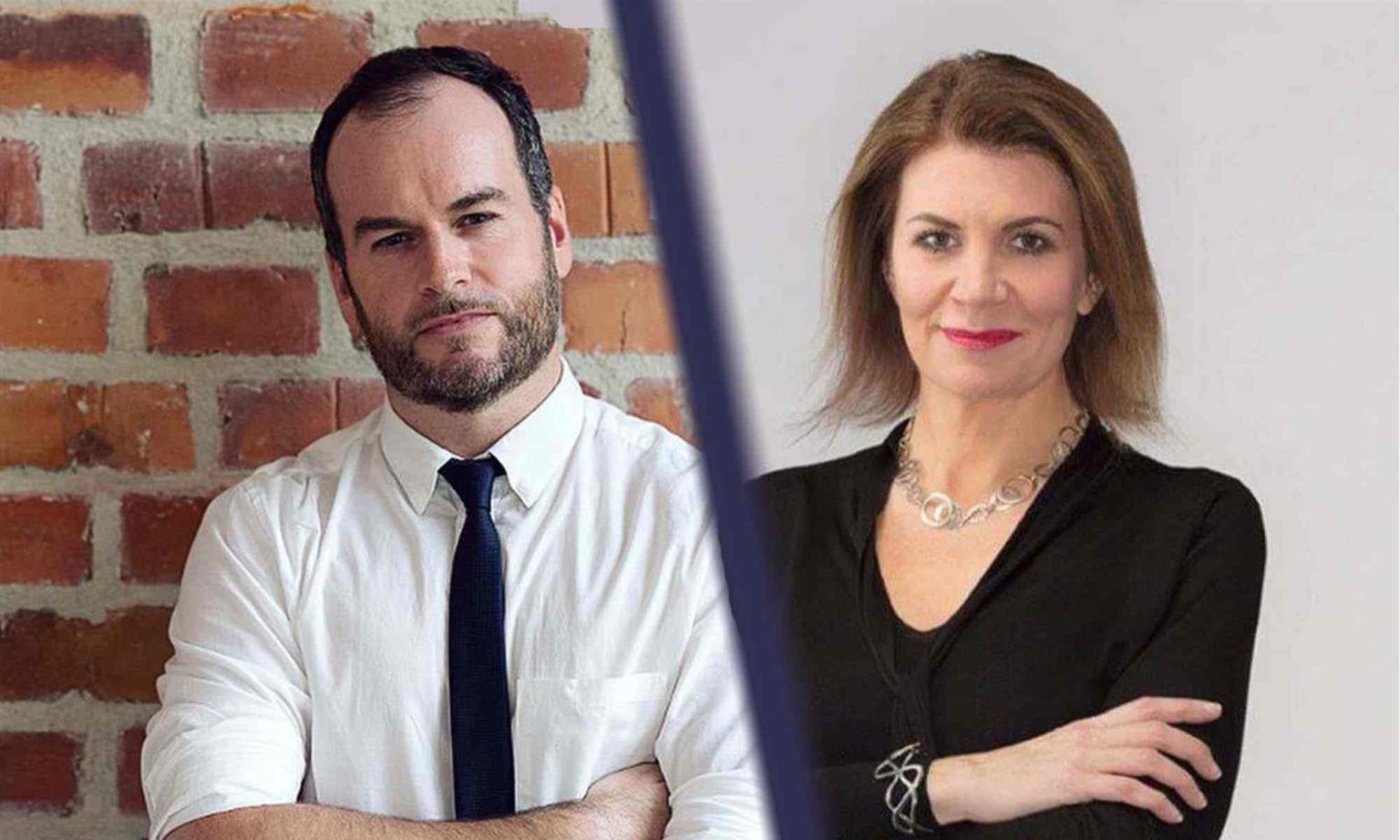
Long-read
When the politics of victimhood turned violent
9/11 was an act of apocalyptic identitarianism.
Want to read spiked ad-free? Become a spiked supporter.
Twenty years on from 9/11, Osama bin Laden is still viewed as the ultimate evil outsider. The foreign enemy who brought death and destruction to America. The implacable foe of the West, and of modernity more broadly. The footage of him in modest dress and humble surroundings in some holdout in Afghanistan, belying his Saudi origins and his vast wealth, contrasts with the gleaming opulence and swagger of the city he sent his men so savagely to attack on 11 September 2001. And yet the truth about bin Laden, and about 9/11 itself, has always been more complicated than this. In many ways, bin Laden was as much a product of the West, and in particular of its politics of grievance, as he was its most feared terroristic enemy. His reign of terror can be seen as a violent manifestation of what has since come to be known as wokeness.
On the anniversary of 9/11 it is worth reflecting – for the millionth time, no doubt – on just how unusual this act of barbarism was. Despite a rush of commentators in 2001 shamelessly claiming that the attack on the Twin Towers and the Pentagon was violent payback for America’s geopolitical crimes – an apocalyptic revolt against its ‘unabashed national egotism and arrogance’, in the words of then Guardian writer Seumas Milne – in reality 9/11 lacked any of the tangible statements or sentiments of traditional forms of anti-Western terrorism. There were no demands, no list of complaints, no requests to release certain prisoners or to remove Western armies from certain countries. Indeed, the only audible statement made by an al-Qaeda operative on 9/11 itself was ‘We have some planes’. Those words were uttered by Mohamed Atta, the chief hijacker, to air-control chiefs, shortly before he crashed American Airlines Flight 11 into the North Tower of the World Trade Center.
We have some planes. That was it. There was no information as to why they had those planes, why they crashed them into certain targets, what it was for. Indeed, bin Laden initially disavowed responsibility for 9/11. Two weeks after the attack, on 28 September 2001, he made statements suggesting that America had attacked itself. This was proof of how keenly he was following the fallout and, in particular, the rise of conspiracy theories claiming that the Bush administration masterminded the 9/11 spectacle as a way of justifying a cranking-up of the American war machine. Maybe this terrorist attack was carried out by ‘persons who want to make the present century as a century of conflict between Islam and Christianity’, he said. It wasn’t me, it was ‘a government within the government in the United States’, he claimed. Of course he later spoke more openly about his role in 9/11. But this early performance of non-responsibility, alongside the striking dearth of treatises or explanations, confirmed how new 9/11 was, how distinct it was from the realpolitik era that preceded it. It lacked ownership, it lacked reason.
As Faisal Devji noted in his fine study of al-Qaeda – Landscapes of the Jihad – this strange terror movement tended to speak in the language of feeling rather than politics. When bin Laden did issue further statements in the 2000s, before his execution by American forces in Pakistan in 2011, he spoke in a style that was more therapeutic than political. As Devji says, al-Qaeda inhabited a world of ‘hurt’. Even when its leaders spoke of traditionally ‘Arab concerns’ – such as the subjugation of Palestine, or later the invasion of Iraq – they did so in the language of ‘humiliation’ and ‘degradation’. And such ‘intensely personal feelings’ are ‘not elements in realpolitik’, Devji argued. ‘Rather, they suggest its opposite: the reduction of a politics of needs, interests and ideas to the world of moral sentiments… For Osama bin Laden, violence is meant not merely to defend Muslims or retaliate against their enemies, but to gain self-respect.’ (My emphasis.)
This was something new. It was distinct both from Arab terrorism in the 1970s and 80s, which was tied to Arab interests, and from the various forms of political Islam in the late 20th century. So where the Islamic Revolution in Iran from 1979 onwards represented an Islamicisation of social interests, an Islamic form given to political and civil society, 9/11 and subsequent acts of Islamist nihilism have lacked any kind of social or political component. Al-Qaeda violence was fundamentally ‘symbolic’, in Devji’s words; it was about ‘effects’ rather than ‘political interventions’. And one of those effects appears, clearly, to have been the expression of grievance, the use of violence to state and perform a sense of woundedness, of victimisation. It is tempting to continue viewing al-Qaeda as the supreme alien force, with its execution of one of the worst acts of violence of modern times, but if we are honest with ourselves we will admit that its replacement of the ‘politics of needs’ with the violence of ‘moral sentiments’ does not feel a million miles away from the cultures of complaint and self-regard that have emerged in the West and have come to be globalised in recent decades.
Al-Qaeda and bin Laden in particular were keen followers of the fads and thinking of Western opinion-formers, particularly radical and liberal ones. Of course bin Laden’s speeches were peppered with the thoughts of Islamist ideologues and Muslim Brotherhood leaders. But these seemingly religious declarations sat oddly alongside quotations from Robert Fisk and Noam Chomsky, a feverish embrace of Western conspiracy theories, concerns about climate change, and a bristling against ‘Big Media’ and ‘bloodsucking’ corporations. Bin Laden was an ideological magpie, always seeking the on-trend woke concern through which his desire to manifest his ‘intensely personal feelings’, to give voice or violence to his movement’s culture of grievance, might be most aptly and impactfully expressed.

At times he sounded indistinguishable from Michael Moore. The war in Iraq is ‘making billions of dollars for the big corporations’, he said. He spoke in a self-consciously therapeutic style, even on manifestly political issues like Palestine. So in 2004 he spoke of the need to ‘raise awareness’ about the ‘justice of our causes, primarily Palestine’. Bizarrely, he implored the ‘scholars, media and businessmen’ of Europe to assist in this raising of awareness. (1) Most notable was his fascination with Western environmentalism. At times he sounded like an ageing hippy. His plea to Americans to ‘save humanity from the harmful gases that threaten its destiny’ would not sound out of place at an Extinction Rebellion gathering.
Bin Laden’s eco-commentary was testament to the extent to which his worldview was shaped as much by the Western ideas swirling around in the globalised networks that al-Qaeda also inhabited as it was by classical forms of Islamic fundamentalism. In 2002 he reprimanded the US for having ‘destroyed nature with your industrial waste and gases, more than any other nation in history’. Hilariously, he upbraided President George W Bush for ‘refus[ing] to sign the Kyoto Agreement’. There is something undeniably surreal about a mass-murderer outlaw lecturing Western leaders for failing to adhere to global treaties drawn up by the UN. In 2007 he said, ‘all of mankind is in danger because of the global warming resulting to a large degree from the emissions of the factories of the major corporations’. Guardian reader much? Then, in 2009, to mark the election of Barack Obama, he essentially implored us all to join Greenpeace. ‘The world should put its efforts into attempting to reduce the release of gases’, he nagged.
Bin Laden’s XR-style declarations, his imbibing of woke fears for the future of the planet, initially appeared incongruous. He kills thousands of people and then worries about the deaths of thousands of people in a future climate catastrophe? And yet the fact that al-Qaeda was an environmentalist outfit as well as an Islamist one actually makes sense. It revealed much about both the form and the content of this strange and modern movement. In terms of form, as Devji has controversially argued, what al-Qaeda and other modern movements, including environmentalism, share in common is a post-nation worldview, a self-consciously globalist approach: ‘The issues of concern to them are strictly global. They cannot be dealt with by solutions at [the] national level.’ In common with ‘global movements like environmentalism’, al-Qaeda had ‘no coherent political programme’, says Devji. And in terms of content, the temptation of the green outlook to bin Laden seems clearly to have lied in what environmentalism fundamentally facilitates: an expression of disdain for contemporary society, especially industrialised society. If bin Laden was anti-Western, which he undoubtedly was, his view appears to have been shaped as much as by the anti-Westernism that is central to woke thinking in the West itself as by traditional Islamist hostility to the West as infidel.
Given its sensitivity to Western thought, especially anti-Western Western thought, it is not surprising that al-Qaeda embraced the culture of complaint too, and even the politics of offence-taking. Alongside bin Laden’s reliance on the therapeutic categories of ‘humiliation’ and ‘degradation’ to explain why al-Qaeda and its violence must exist, his movement also embraced an early version of cancel culture. Al-Qaeda’s second-in-command, Ayman al-Zawahiri, pursued this theme vigorously in the 2000s. He released numerous statements chastising Western leaders and thinkers for their alleged insults to Islam. In 2007, when it was announced that Salman Rushdie would be knighted, al-Zawahiri denounced ‘malicious Britain’ and directly criticised the Queen for decorating someone who had insulted Islam.
In 2006, al-Zawahiri entered into the Danish cartoons controversy – the fury over the publication of depictions of Muhammad in the newspaper Jyllands-Posten towards the end of 2005. Again, he considered these cartoons to be hurtful, insulting. Strikingly, he adopted the Western identitarian view that insists Muslims are more oppressed than other social or religious groups. ‘[No] one dares to harm Jews or to challenge Jewish claims about the Holocaust nor even to insult homosexuals’, he said. Jews and gays – protected categories. Muslims – permanent victims. He echoed the view of much of the Western intelligentsia at the time, which said that insulting Muhammad could not be described as a freedom-of-speech issue because it was punching down. ‘The insults against Prophet Muhammad are not the result of freedom of opinion [but rather] because what is sacred has changed in this culture’, he complained.
Al-Qaeda militants were early adopters of cancel culture, of raging against that which gives offence. Again, this outlook appeared to come less from the external world of realpolitik, of interests and aims, and more from the internal world of feeling and sentiment. It was not surprising when al-Zawahiri, who appears to have been al-Qaeda’s chief No Platformer, celebrated the assault on the offices of Charlie Hebdo in 2015. Indeed, Al-Qaeda in the Arabian Peninsula (AQAP), of which al-Zawahiri was leader, claimed responsibility for the Charlie Hebdo attack. Al-Zawahiri made a statement shortly after the attack, describing it as payback for the blasphemers, as a just attack on ‘immoral Westerners who left their Christianity and assaulted the Prophet of Islam’. I have argued before that the two mass murderers who carried out the assault on Charlie Hebdo were essentially ‘the armed wing of political correctness’, seeking to punish, to cancel, those who hurt their feelings. This was a theme developed by al-Zawahiri himself in the years before the Charlie Hebdo massacre – the need to censor, with violence if necessary, those who seek to erase our identity.
That al-Qaeda leaders moved from organising the worst terrorist attack in history to issuing statements about Muslims’ hurt feelings or riding on the coattails of smaller-scale attacks like the one at Charlie Hebdo can of course be seen as a sign of how defeated, how shrivelled, their movement had become in the years after 9/11. The ‘war on terror’ undoubtedly reduced al-Qaeda’s capacity to organise terror events. At the same time, though, there is a logical flow from the apocalypticism of 9/11 to the cheerleading for the Charlie Hebdo attack, from al-Qaeda’s use of unprecedented terroristic violence in New York and Washington, DC to its angry, finger-wagging statements about ‘malicious’ Westerners who insult Islam. In all cases, we were witnessing a therapeutic deployment of violence and threats; a use of terrorism not to effect certain ends or to make gains in the political universe, but rather to express an amorphous, often unnamed sense of grievance against societies that are viewed as uncaring, insulting, hurtful.
This use of terror as a form of grievance has continued following the sidelining of al-Qaeda. Recent terror attacks, in London, Manchester, Paris and elsewhere, appear to have been motivated as much by the terrorists’ cloying sense of victimhood as by their juvenile desire to establish an Islamic caliphate in Europe. What is striking is that this terroristic cult of the victim sits neatly alongside a more mainstream cult of the victim. Indeed, mainstream figures sometimes unwittingly flatter terrorists’ ridiculous sense of victimhood, their seemingly unlimited capacity for self-pity, by arguing that it is indeed Western society’s mistreatment of Muslims that very often pushes them into the arms of al-Qaeda or ISIS.
For example, following the various terrorist attacks in France in 2015, commentators wondered out loud if ‘discrimination against Arabs’ played a role in tempting so many in France to align with ISIS. A writer for the New York Times argued that ‘a feeling of exclusion and disrespect’ can be ‘fertile soil’ for radicalism to take hold. The Grand Mufti of Australia, though he firmly condemned the 2015 attack in Paris, said we have to look at the ‘causative factors’ to such terrorism, which might include ‘racism and Islamophobia’. One of the most disturbing public debates I have been involved in in recent years was at Trinity College, Dublin in 2015, where I sensed a level of sympathy, or at least of understanding, for the terrorists who carried out the Charlie Hebdo massacre.
There often seems to be an interplay between the Western culture of victimhood, which sees being a Muslim as one of the highest forms of victimhood, and the terroristic culture of grievance. Indeed, the Islamophobia industry in the West has thoroughly mainstreamed the idea of Muslim victimhood and inflamed a culture of grievance among those who believe Islam should never be insulted or even criticised. In the late 1990s, the Runnymede Trust included within its seminal definition of the word ‘Islamophobia’ any view which says that Islam is ‘inferior to the West’. Instead, Islam must be seen as ‘distinctively different but not deficient’ and as being ‘equally worthy of respect’. This fear of ‘Islamophobia’ has generated two decades’ worth of sensitivity and even censorship in public discussion about Islam. It has helped to intensify a culture of separatism and even of injury among some in the Muslim community. If, in these circumstances, some Muslims in the West come to view Western society itself as hostile, as damaging to their identity and their self-esteem, should we really be surprised? Such self-regarding anguish will in part have been cultivated by mainstream thinking around Islam, identitarianism and offence.
Islamist terrorism comes across as a violent manifestation of the culture of victimhood. It looks to me like a function, or at least a product, of the ideology of multiculturalism, of the West’s own cultivation of religious and ethnic separatism and the invitation to anti-Western loathing that multiculturalism implicitly makes to certain communities. From 9/11 to Charlie Hebdo, from 7/7 to the Manchester Arena bombing, what has tied these divergent barbaric attacks together is an absence of interests as they were traditionally understood and their replacement by violent sentiment, militant self-pity, and an urge to punish or erase the disrespecters of Islam. Islamist nihilism is a species of identity politics in this sense. It is identitarianism turned apocalyptically violent. It is the West’s own self-loathing turned against the West, in bloody form.
Twenty years on from that terrible day in September 2001, it is worth reflecting on the true and complicated nature of Islamist violence. Yes, anyone who attacks or plans to attack our societies should be ruthlessly pursued, and stopped by any means necessary. At the same time, let us explore, honestly, how the regressive ideologies of identity, victimhood and censure mix with neo-fundamentalist Islamist dogma to give rise to forms of violence that threaten our lives and our liberties. And we cannot do that without freedom of speech – including on everything to do with Islam.
Brendan O’Neill is editor of spiked and host of the spiked podcast, The Brendan O’Neill Show. Subscribe to the podcast here. And find Brendan on Instagram: @burntoakboy
(1) Messages to the World: The Statements of Osama bin Laden, Verso, 2005

A world gone mad – with Brendan O'Neill and Julia Hartley-Brewer
Wednesday 22 September – 7pm to 8pm
Tickets are £5, but spiked supporters get in for free.
Pictures by: Getty.
Who funds spiked? You do
We are funded by you. And in this era of cancel culture and advertiser boycotts, we rely on your donations more than ever. Seventy per cent of our revenue comes from our readers’ donations – the vast majority giving just £5 per month. If you make a regular donation – of £5 a month or £50 a year – you can become a and enjoy:
–Ad-free reading
–Exclusive events
–Access to our comments section
It’s the best way to keep spiked going – and growing. Thank you!







Comments
Want to join the conversation?
Only spiked supporters and patrons, who donate regularly to us, can comment on our articles.